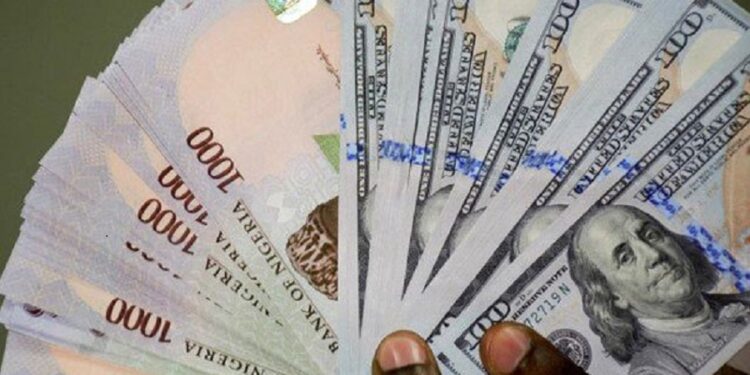The Federal Government is reportedly considering a policy shift that could involve converting foreign currencies held in domiciliary accounts of citizens to the local currency, the naira. This potential move aims to stabilize the national currency, which recently experienced its sharpest decline in the official Nigerian Foreign Exchange Market, dropping by 24% to close at N1,348 per dollar.
According to sources within the Presidency, the government is concerned about the issue of forex scarcity and the depreciation of the naira. They assert that this problem primarily affects the elite and argue that allowing individuals and corporate organizations to hoard foreign currencies at the expense of the naira is not acceptable.
A high-ranking official stated, “The problem of dollar scarcity is an elite problem… Nobody should keep a domiciliary account if they do not have legitimate foreign currency earnings.” The source emphasized the need to address the issue of over $30 billion in domiciliary accounts, suggesting that in other countries, foreign currencies are not intended to remain in people’s accounts.
This potential policy shift contrasts with earlier statements from the Bola Tinubu administration in September 2023, which aimed to attract funds held in domiciliary accounts and those abroad for significant investments in various sectors of the economy. The Minister of Finance and Coordinating Minister of the Economy, Wale Edun, had previously expressed the government’s intention to create an environment conducive to attracting such funds.
In a related development, the Central Bank of Nigeria has reportedly banned banks and fintechs from conducting International Money Transfer Operations directly. The guidelines stipulate that banks can only act as agents in these operations, and financial technology companies are not allowed to obtain approval for International Money Transfer Operations. Additionally, the minimum share capital requirement for International Money Transfer Operators (IMTOs) has been increased to $1 million.
The naira’s recent fall against the dollar prompted the government to take measures to enhance the efficiency of the financial system and stabilize the currency. Despite initial concerns about the government putting a lien on funds in domiciliary accounts, the naira’s decline seems to have slowed in the past few days.
The gap between the official market and the parallel market has also reduced, with the naira closing the week at N1,435.53/$ after reaching an all-time high of N1,482.57/$ on Tuesday. The Central Bank’s directive to authorized dealers in the financial market emphasizes transparency and warns against creating price distortions.
In an effort to boost liquidity in the foreign exchange market, the Central Bank instructed Deposit Money Banks to sell their excess dollar stock by February 1, 2024, while cautioning against hoarding excess foreign currencies. The circular titled ‘Harmonisation of Reporting Requirements on Foreign Currency Exposures of Banks’ addresses concerns over banks holding large foreign currency positions for profit.
























